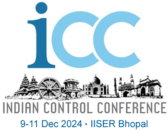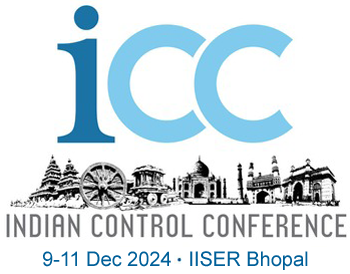The field of automatic control places great emphasis on theoretical guarantees. It is not surprising, therefore, that many of the papers presented in major control conferences are devoted to extending the boundaries of our theoretical understanding. Nevertheless, the role of experimentation in automatic control is crucial too since control technology is meant to be applied in real life. Experimental test beds help ascertain the performance of control algorithms under real-life limitations posed by communication delays and losses, sensor noise, actuator imperfections and limitations, quantization, and real-time computational constraints. In doing so, experiments also throw up new problems and create new fertile areas for theoretical exploration.
To recognise and encourage more students and researchers to take up experimental research in the field of automatic control, ICC-10 will feature a special session where selected students and researchers from educational institutions will get an opportunity to showcase their experimental work (in automatic control) which may either be recently published, currently under review, or even ongoing. Papers submitted under this criteria will be included in the conference proceedings but not be published in IEEE Xplore.
The selected abstracts will be given 4 minutes to present their work, plus access to a screen to share videos or a table to showcase their demos. There will be an award for the best experimental research paper.
Who is eligibile?
Any student or researcher working in an educational institution or a research lab is eligible.
What kind of work is eligible?
The work must have a strong experimental component and relevance to automatic control, and must have been performed or currently ongoing at an educational institution. Experimental work for educational purposes are also welcome. Work which is published on or after September 1, 2023, or currently under review for publication elsewhere will be considered. Work published prior to September 1, 2023 will not be considered.
How will the submissions be judged?
Submissions will be judged based on the novelty and complexity of the test bed, the challenges involved in designing and building the test bed and in implementing a control design, and the real effects captured by the test bed. Work which involves implementation of novel control strategies on existing test beds will also be judged favourably. Work involving hardware-in-the-loop methods, digital twin models and industry collaboration will also receive special consideration.
How can one make a submission?
Eligible students and researchers have to submit an extended abstract of upto four pages on the experimental work that they wish to be considered. The extended abstract should include details of design and development of the test bed, detailed design of the experiment, and a YouTube link for a video of the working experiment.
The abstracts must be submitted electronically by the submission deadline through the PaperCept Conference Management System at http://controls.papercept.net. Submissions should follow the IEEE double-column format for conferences. This link provides detailed information on submission to ICC-10. Follow this link for LaTeX-specific style files and support.
The deadline for making submissions is September 15, 2024.

